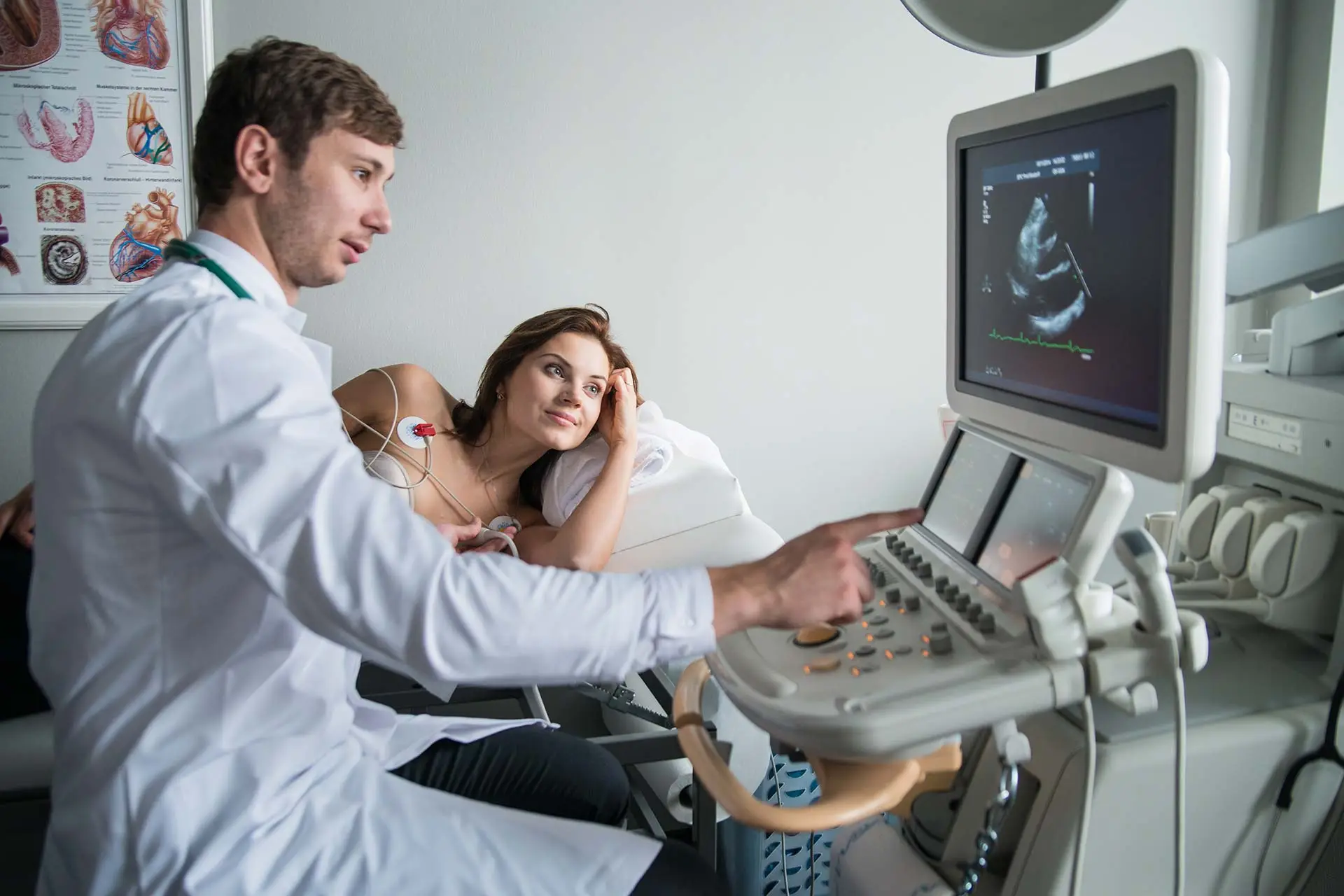

A cardiology examination is the first step in determining whether your symptoms are related to the heart and blood vessels. It is intended for anyone with high blood pressure, shortness of breath (during exertion or at rest), chest pain, irregular or rapid heartbeat, palpitations, dizziness/fainting, or swelling of the legs.
The examination includes a detailed discussion, a review of medical and family history, a clinical cardiology examination, blood pressure measurement, and an ECG recording. If necessary, additional tests follow (heart ultrasound, stress test, Holter monitoring).
An ECG shows the electrical activity of the heart. It is used to detect and monitor arrhythmias, signs of past or acute blood supply disturbances to the heart muscle, and other conditions (e.g., inflammation of the heart muscle or pericardium). The examination is quick, painless, and a standard part of almost every cardiology visit.
A heart ultrasound is a non-invasive and painless examination used to assess the function of the heart muscle, valves, and blood flow. It is the test of choice in cases of an audible heart murmur, unexplained shortness of breath, chest pain, suspected congenital defects, valve disease, or rhythm disorders.
It is also recommended as a preventive measure for individuals with a family history of cardiovascular disease and for those exposed to high physical demands (athletes, physically demanding jobs).
The exercise stress test monitors heart function during physical exertion (stationary bicycle). During the test, we measure ECG, heart rate, and blood pressure, and observe for any chest pain or shortness of breath.
This examination helps detect blood flow disorders that are not visible at rest, assess physical fitness, and identify arrhythmias under stress. It is safe, non-invasive, and conducted under continuous supervision by medical staff.
The Holter ECG continuously records the heart’s electrical activity for 24–72 hours during your normal daily activities. A small device with electrodes on the chest does not restrict movement.
It is suitable for detecting occasional palpitations, dizziness, skipped beats, fainting episodes, or suspected arrhythmias that a short ECG might miss. During the test, you keep a symptom diary for more accurate correlation.
Holter BP measures blood pressure during the day every 15–30 minutes and at night every hour, over a 24-hour period. It shows how blood pressure changes during activity, rest, and sleep.
It is useful for detecting hidden (latent) hypertension, assessing nighttime hypertension, and evaluating the effect of medications. The test is painless; you wear a cuff and a small recording device on your belt.
Spirometry is a non-invasive, safe method for assessing lung function. It helps determine whether shortness of breath is caused by the lungs or the heart, and is therefore a common complementary test in cardiological evaluation (e.g., in suspected COPD, asthma, or combined problems).




Monday - Thursday
Friday
Saturday - Sunday
08:00 - 19:00
08:00 - 16:00
Closed
Copyright © 2025 MD medicina | All Rights Reserved | Quality and safety | Privacy Policy